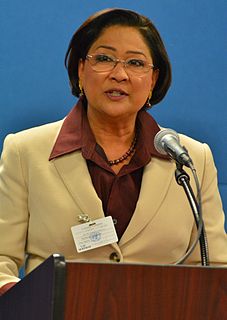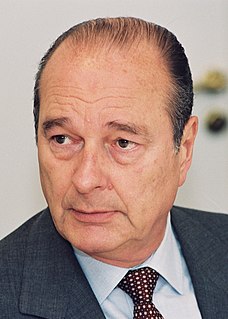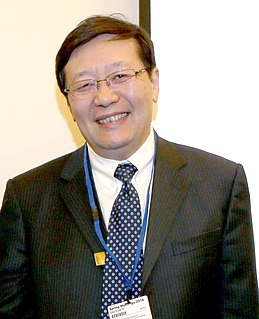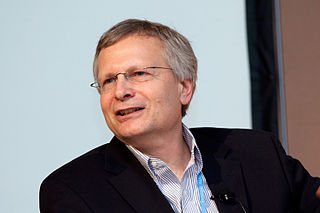A Quote by Kamla Persad-Bissessar
Global governance cannot be limited to the crafting of instruments related to the promotion of democracy. A key component must be the creation of fair and equitable rules to enhance the development prospects of developing countries.
Related Quotes
Britain's place in the world is one uniquely suited to thriving in the complex new reality of global politics. We are a key anchor of a rules-based system in international affairs that many across the globe look to for stable and effective governance and leadership. We are a beacon that shines brightly the light of freedom and democracy.
The government must nurture an eco-system where the economy is primed for growth; and growth promotes all-rounddevelopment. Where development is employment-generating ; and employment is enabled by skills. Where skills are synced with production; and production is benchmarked to quality. Where quality meets global standards; and meeting global standards drives prosperity. Most importantly, this prosperity is for the welfare of all. That is my concept ofeconomic good governance and all round development.
Unlike national markets, which tend to be supported by domestic regulatory and political institutions, global markets are only 'weakly embedded'. There is no global lender of last resort, no global safety net, and of course, no global democracy. In other words, global markets suffer from weak governance, and are therefore prone to instability, inefficiency, and weak popular legitimacy.
I think that my emergence as a leader is closely related to the development of Taiwan's democracy. Taiwan's democracy was a gradual development. It was done from the bottom up. Therefore a lot of the more successful political leaders come from civil society, those that are closer to the grass-roots level of the public.






























